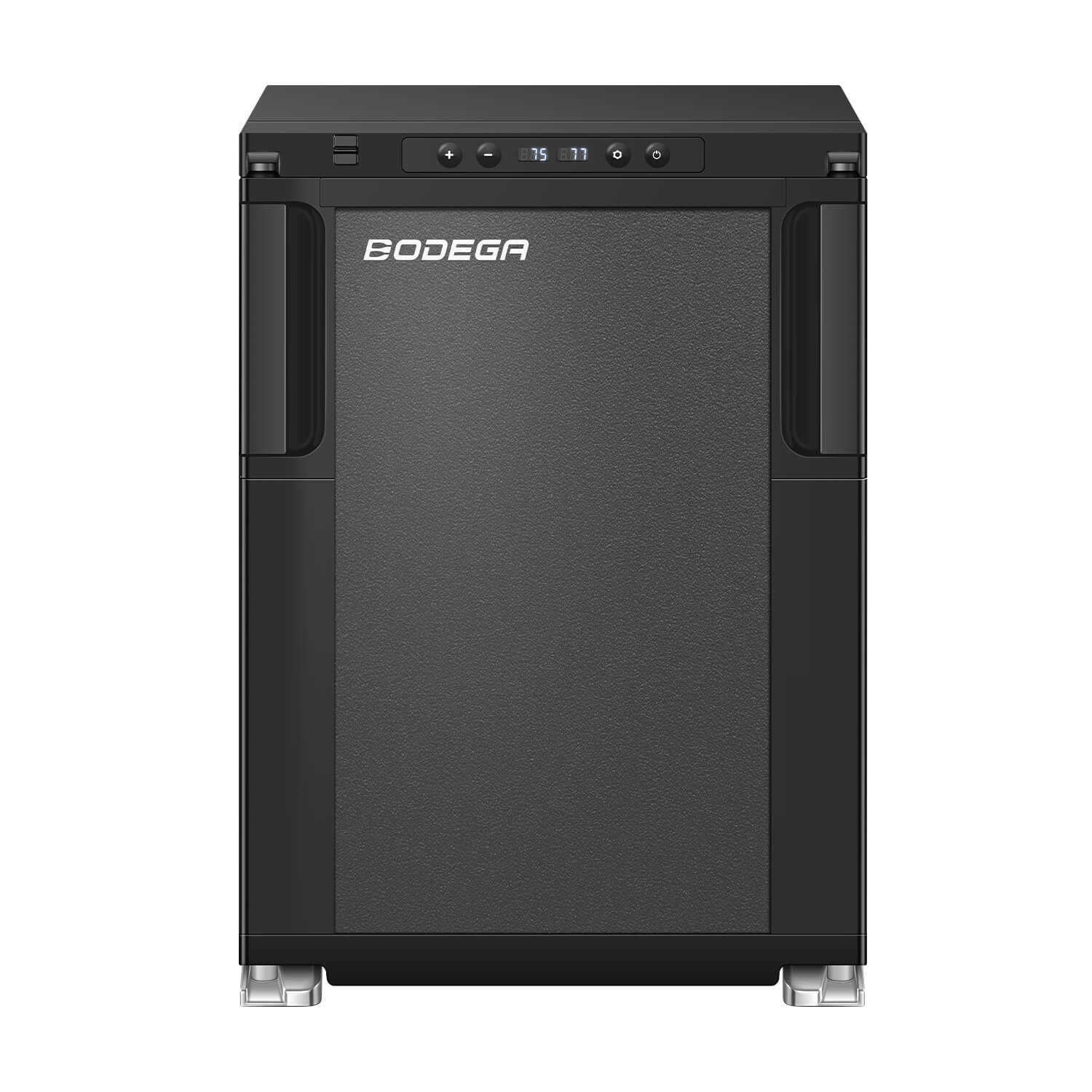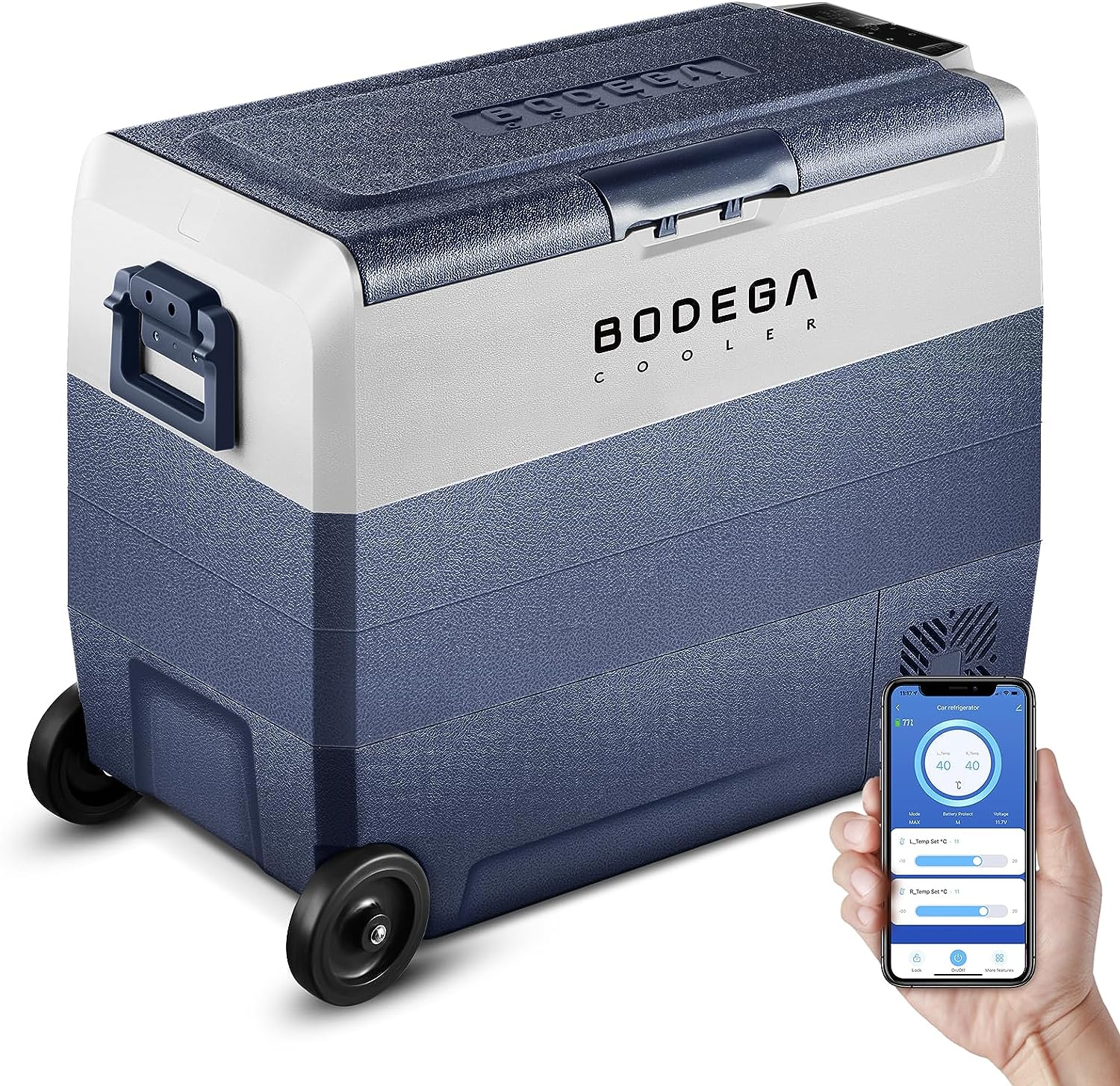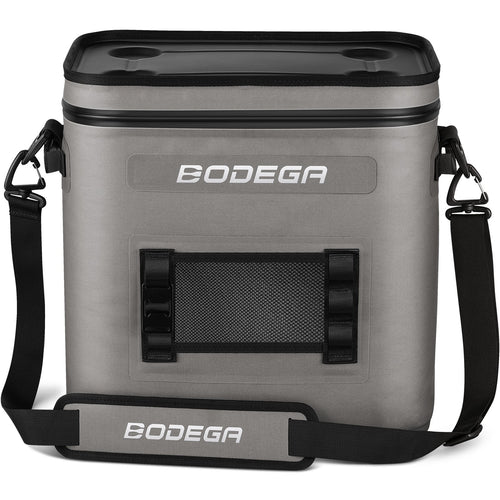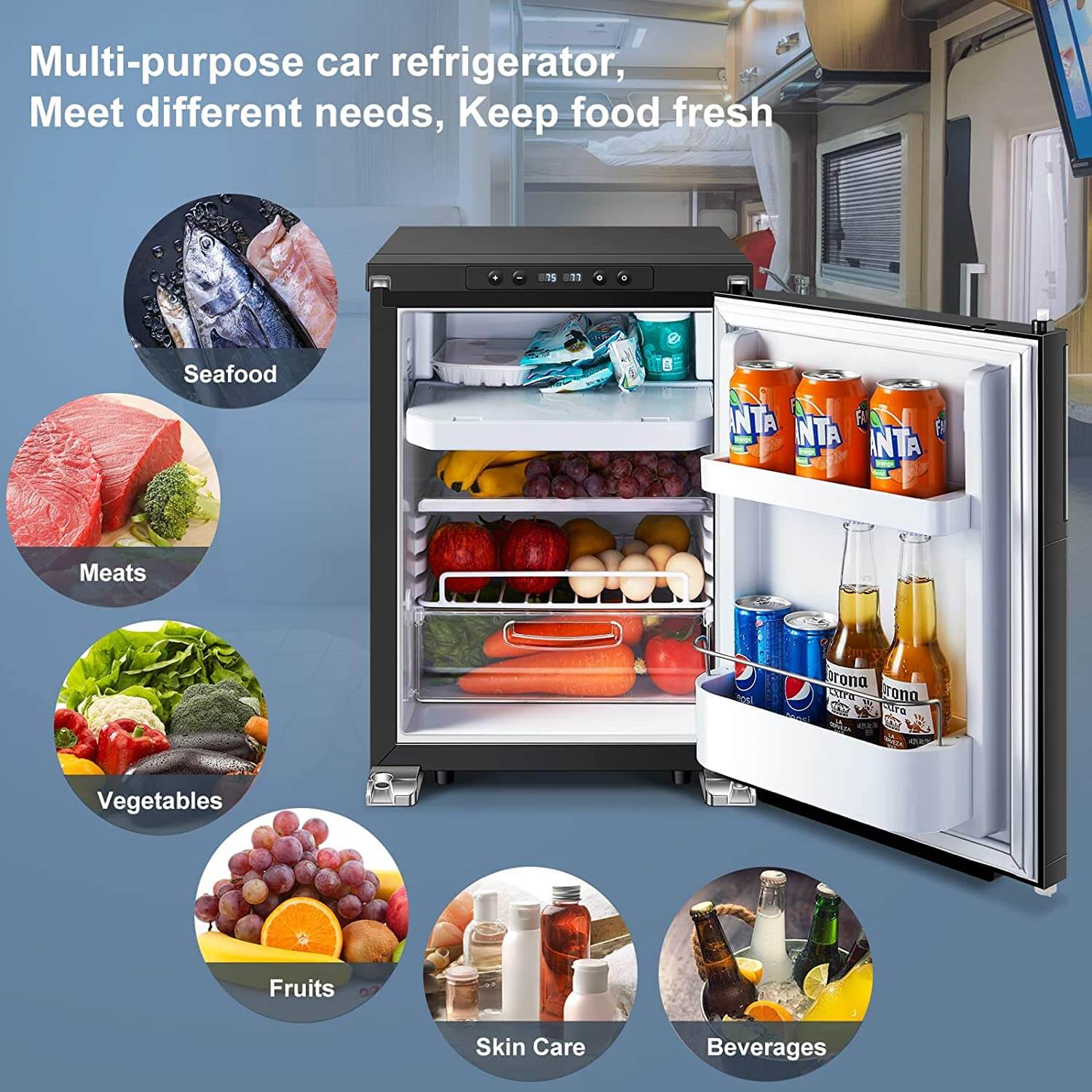For long-haul truckers, the road becomes a second home, and the need for fresh and chilled food is a constant companion. In this guide, we explore the ingenious ways truckers keep their food cold while navigating the vast highways and byways of the country.
The Portable Cooling: Essential Tools for Truckers
Truckers rely on an array of portable cooling solutions to preserve the freshness of their perishables during extended journeys.
1. Truck Fridges and Freezers:
- A dedicated truck fridge or freezer is a game-changer. These compact appliances are designed to fit seamlessly into the cab, providing a reliable and adjustable cooling environment for perishable goods.

2. Portable Freezers:
- Powered by 12-volt systems, portable Freezers are versatile companions for truckers. They offer a convenient way to keep a selection of food items cool without the need for ice.

3. Cooling Bags and Ice Packs:
- Insulated cooling bags combined with reusable ice packs provide a simple yet effective solution. Truckers strategically pack these bags with perishables to maintain a cool temperature throughout the journey.

4. Ice Chests and Coolers:
- For those embracing the simplicity of traditional methods, ice chests and coolers with added insulation keep items cool with the help of ice packs or cubes. While not as high-tech, they provide a reliable solution.

Read more: Can You Use a Mini 12V Fridge in a Semi Truck?
Choosing the Right Cooling Companion: Factors to Consider
Selecting the ideal cooling equipment is a decision that depends on several crucial factors.
1. Size and Capacity:
- Assess the available space in the truck cab and choose a cooling solution that fits seamlessly. Consider the capacity needed for the duration of the journey.
2. Power Source Compatibility:
- Opt for a cooling device that aligns with the truck's power source. Most truck fridges operate on 12-volt systems, ensuring compatibility with the vehicle's battery.
3. Energy Efficiency:
- Prioritize energy-efficient models to minimize the impact on the truck's battery. Look for features like automatic shut-off or power-saving modes.
Read more: How To Choose The Best Refrigerator For Truck Driver?
Strategic Planning: Maximizing the Cooling Potential
Truckers employ strategic planning to optimize the cooling potential of their chosen solutions.
1. Pre-cooling:
- Before hitting the road, truckers pre-cool their cooling devices to the desired temperature. This ensures an immediate and effective cooling environment for perishables.
2. Smart Packing:
- Strategic packing is crucial. Placing items that require lower temperatures closer to the cooling source ensures uniform cooling. Additionally, minimizing air gaps reduces the workload on the cooling system.
3. Organization is Key:
- Maintain a well-organized system to easily access items without unnecessary exposure to warmer air. Consider using labeled containers to segregate different food categories.
4. Temperature Monitoring:
- Utilizing temperature-monitoring devices allows truckers to keep a vigilant eye on the internal temperature of their cooling units. This proactive approach prevents fluctuations that could compromise food safety.

Power Management: Ensuring Continuous Cooling on the Road
Keeping the cooling system operational requires a strategic approach to power management.
1. Idle Reduction Technologies:
- Invest in idle reduction technologies like auxiliary power units (APUs) to power the cooling system without running the truck's main engine, preserving fuel and reducing emissions.
2. Regular Battery Checks:
- Conduct regular checks on the truck's battery health to ensure it can support the continuous operation of the cooling equipment.
Conclusion: Freshness Beyond the Horizon
For truck drivers, maintaining the freshness of their meals is not just a matter of convenience; it's a testament to their resilience on the road. With the right cooling equipment, strategic planning, and a dash of ingenuity, truckers ensure that every meal is a refreshing pit stop on their journey.
FAQs
Q1: Can I install a truck fridge myself?
Yes, many truck fridges are designed for easy installation. However, it's recommended to follow manufacturer guidelines and, if necessary, seek professional assistance.
Q2: How long can a truck fridge run on the truck's battery?
The duration varies based on factors like the fridge's power consumption, the truck's battery capacity, and whether idle reduction technologies are employed. On average, many fridges can run for several hours.
Q3: Can I use a portable cooler as a freezer?
While portable coolers are primarily designed for cooling, some models offer the flexibility to function as a freezer, allowing temperature adjustments.
Q4: What's the ideal temperature for a truck fridge?
The ideal temperature range for a truck fridge is typically between 32°F to 40°F (0°C to 4.4°C). However, it's advisable to check the manufacturer's recommendations.
Q5: Are truck fridges noisy?
Most modern truck fridges are designed to operate quietly. However, noise levels may vary among different models.







